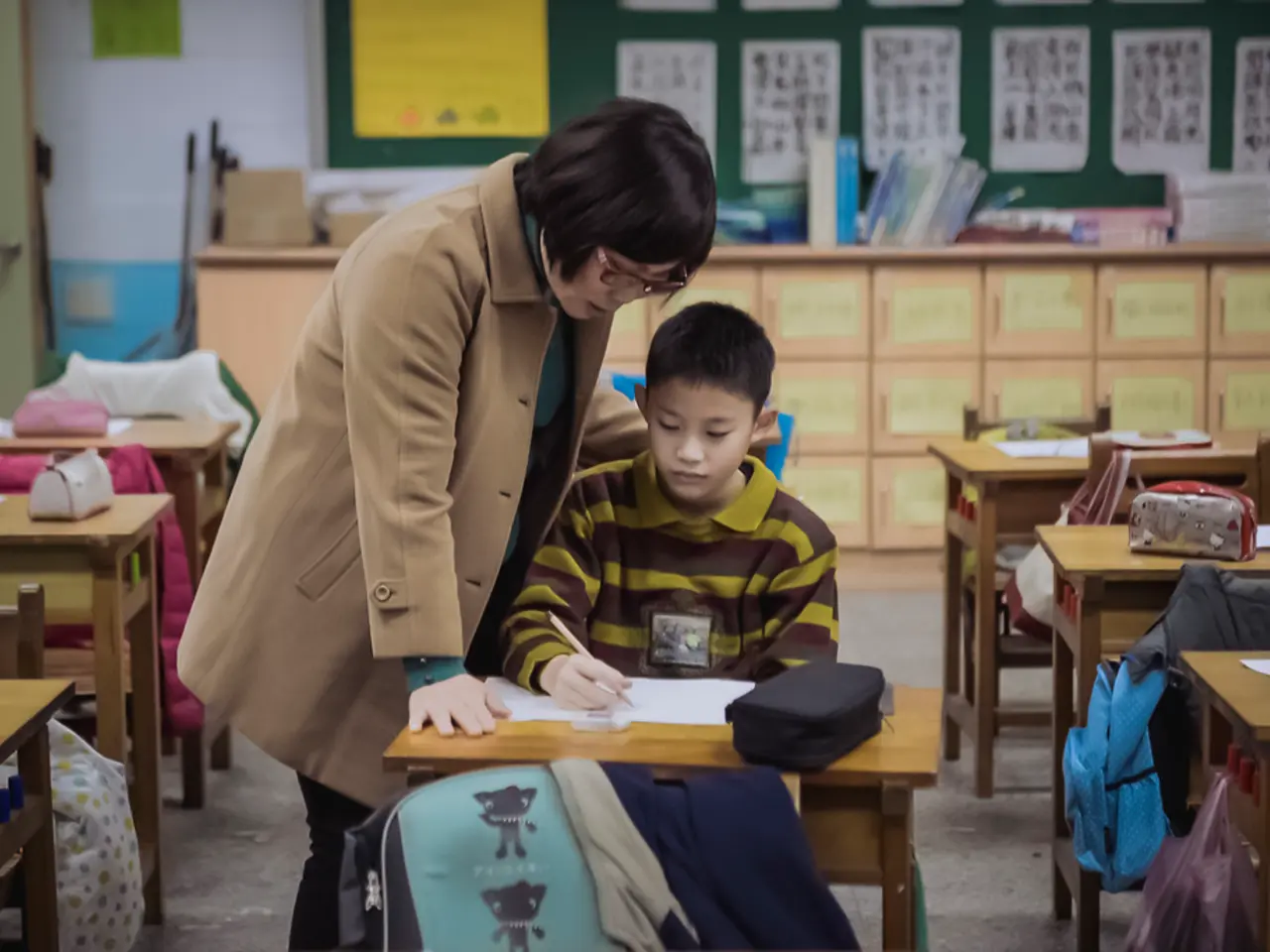Teacher's Voice: Inviting Families into our Classrooms Reduced Absences and Boosted Reading Skills
In San Diego, California, Hamilton Elementary School, under the leadership of Principal Dr. Brittany Daley, has undergone a remarkable transformation over the past two years. The school's focus on parent and caregiver engagement has yielded significant improvements in student achievement, motivation, and social-emotical well-being.
Two years ago, the author of the school's blue chairs initiative bought each teacher a blue chair to create a dedicated family visit space. The focus of these meet-ups was on building trust and creating meaningful relationships with students and their families. Initially, the emphasis was on attendance, with the aim of getting families to come inside the school as much as possible.
After returning from the pandemic, the school faced a challenging period. Roughly 13% of students were reading on grade level, and 37% were chronically absent. However, the school persevered, and today, 45% of students are reading at grade-level, and chronic absenteeism has decreased to 10%.
The school's approach to family engagement is multifaceted. It is centred in staff meetings, attendance meetings, literacy and math plans, behavioral and counseling plans, and meetings about school procedures and budgets. ClassDojo, a mobile app, has been instrumental in building trust and collaboration between families and staff at Hamilton Elementary. The author used ClassDojo to establish open communication with parents, automatically translating all messages into parents' native languages.
Activities were taught by students and teachers to family members during conferences, with a schoolwide focus last year on phonics, with activities sent home for families to complete with their children. After establishing a foundation, a focus on academics was added, with activities tied to concepts students needed reinforced.
The benefits of parent and caregiver engagement in a child's education are well-documented. Research by the National Literacy Trust shows that parent involvement in reading activities positively impacts reading achievement, language comprehension, expressive language skills, and attention in the classroom. Moreover, parental emotional involvement creates a supportive environment that fosters improved study habits, emotional well-being, and motivation in students.
Hamilton Elementary's success story is a testament to the power of consistent, authentic communication and partnership between parents and educators that is culturally responsive and embedded in school systems. By prioritising family involvement in school culture and practices, the school has been able to reduce absenteeism, improve academic achievement, and foster a stronger, more supportive school community.
The school hosts after-school art classes and monthly family Fridays for family engagement. About 10 family members and their children showed up to the first Family Fridays, but now there are roughly 200 caregivers at every meet-up. Families now participate in community-based initiatives at the school, such as a boutique, food distribution center, book club, English classes, and a monthly meet-up.
The school has also organised events like a Halloween costume drive, Read Across America event, and low-stakes events for family engagement. Roughly half of the students at Hamilton Elementary are English learners, with Spanish-speaking families being the majority, but there are also growing populations of students whose first languages are Haitian-Creole, Pashto, and Vietnamese.
In conclusion, the best way to engage parents in K-12 education is through consistent, authentic communication and partnership between parents and educators that is culturally responsive and embedded in school systems. By prioritising family engagement and adopting a multifaceted, communication-rich, relationship-based, and systematically integrated approach, schools can achieve measurable gains in academic achievement, stronger motivation, and better social-emotional health for students.
Educating parents on the importance of reading activities can lead to significant improvements in their children's reading achievement, language comprehension, and attention in the classroom, as demonstrated by the National Literary Trust's research.
Integrating innovative practices like using mobile apps for open communication with parents, translating messages into native languages, and organizing events that cater to diverse cultural backgrounds, can foster stronger relationships and trust between families and educators, resulting in better personal growth and learning outcomes for students.
By providing ongoing support, resources, and opportunities for parents to become actively involved in their children's education, schools like Hamilton Elementary can lead to increased motivation, improved academic performance, and the fostering of a more cohesive and supportive school community.




